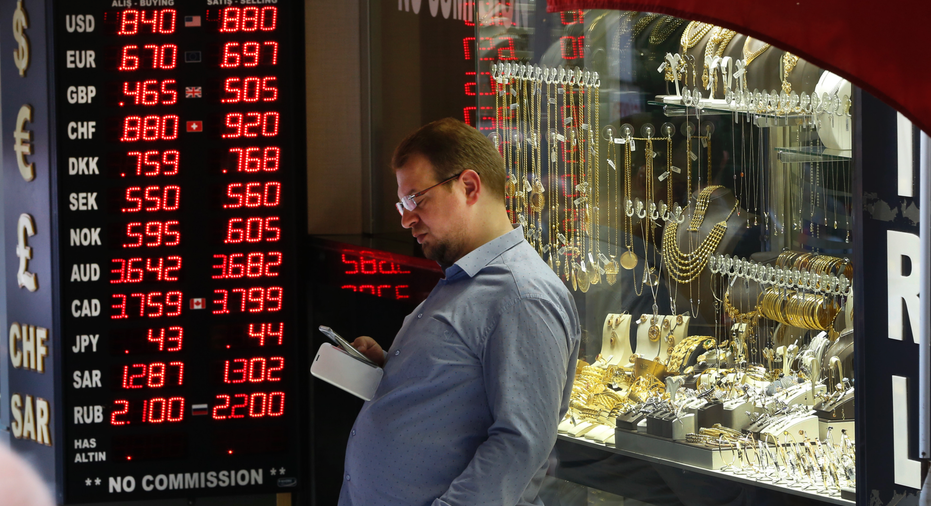Turkish central bank raises key rate and helps lift currency

ANKARA, Turkey – Under pressure to act, Turkey's central bank sharply raised its key lending rate Wednesday to try to stem an outflow of capital from the country, control inflation and support the beleaguered currency.
The Turkish lira regained some of its value after the bank's monetary policy committee held an emergency meeting and announced it was raising the rate from 13.5 percent to 16.5 percent. The value of the lira responded by rising to around 4.58 per dollar, after it had dropped to over 4.80 per dollar, down about 5 percent since the previous day.
The rate increase came despite President Recep Tayyip Erdogan's insistence that rates be kept low. Higher rates can support a currency and ease inflation. But they also tend to hinder economic growth by making it costlier to borrow and can arouse public discontent.
The lira had lost more than 20 percent of its value against the dollar since the year began. Concerns had grown that imports would become more expensive for the Turkish people. A lower-valued currency can also lead investors to pull their money out of a country if they expect the value of their investments to drop as the currency weakens.
Erdogan, speaking at a Ramadan fast-breaking dinner late Wednesday, said the weak Turkish currency did not reflect the state of the country's economy.
"The partial volatility in the currency is certainly not consistent with the economic realities of Turkey," he said, pointing to Turkey's 7.4 percent growth rate and other indicators. "The volatility in the exchange rate is not just about our country; it's a global problem."
Erdogan said Turkey had the means to stem the currency fluctuation, and he vowed to adopt new measures after the June 24 polls to stem inflation and the nation's current account deficit. The current account is the broadest measure of trade, covering not only the movement of goods and services but also investment flows.
Turkey's market jitters in part reflect a global trend in which the currencies of emerging economies have come under pressure. Economists say that is partly because the U.S. Federal Reserve is steadily raising rates, thereby encouraging investors to shift their money into higher-yielding investments in the United States.
Because Turkey is particularly dependent on foreign capital, its markets are among those to have suffered most. Other countries that have experienced sharp drops in the value of their currencies include Brazil and Argentina.
But Turkey's currency has been hit especially hard because of the political backdrop: Though the central bank is in theory independent of the government, Erdogan has exerted pressure on the bank not to raise rates and potentially stir unrest as he prepares for early presidential and parliamentary elections next month.
Jason Tuvey, an economist with Capital Economics in London, said that if the central bank "continues to bow to pressure from Erdogan and refrains from raising interest rates, that would lead to an even sharper fall in the currency."
Earlier Wednesday, Deputy Prime Minister Bekir Bozdag cast the lira's drop as a foreign plot to harm Erdogan and distort the results of the polls.
"Those who believe that by manipulating the dollar they will lead to results that will harm the nation and their pockets and change the election result, are mistaken," the state-run Anadolu Agency quoted Bozdag as saying.
Muharrem Ince, the main opposition party's candidate, who is challenging Erdogan at the June 24 presidential race, called on the Turkish leader to stop interfering in the central bank's monetary policy and to ease concerns over fiscal discipline, warning that the "economy is about to hit the wall."



















